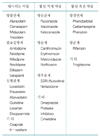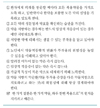Abstract
The Korean population is aging rapidly. In 2004 the proportion of 65 years or over is 8.7% of all population, but they consume about 20% of medical resources. The majority of them are suffering from multiple chronic disorders and necessarily polypharmacy, which can result in various adverse drug reactions in elderly patients. Polypharmacy, use of supplements, adherence issues, and the potential for adverse drug events all pose challenges to effective prescription. Understanding the interplay between aging physiology, chronic diseases, and drugs will help the physician avoid potential adverse drug events as well as drug-drug and drug-disease interactions. In daily practice, physicians should be alert to identify any adverse drug reactions and to find strategies for appropriate prescriptions for the elderly patients. These efforts will help ensure high-quality care for the elderly by preventing iatrogenic disorders, and improve overall health, and finally good quality of life for the aged.
References
7. Rathore SS, Metha SS, Boyko WL Jr, Schulman KA. Prescription medication use in older Americans: a national report card on prescribing. Fam Med. 1998. 30:733–739.
8. Giron MS, Wang HX, Bernstein C, Thorslund M, Winblad B, Fastbom J. The appropriateness of drug use in an older non-demented and demented population. J Am Geriatr Soc. 2001. 49:277–283.

10. Beyth RJ, Antani MR, Covinsky KE, Miller DG, Chren MM, Landefeld CS, et al. Why isn't warfarin prescribed to patients with nonrheumatic atrial fibrillation? A study of physician's opinions and their relationship to clinical characteristics and the physician's prescribing practices. J Gen Intern Med. 1996. 11:721–728.

11. Fouts M, Hanlon J, Pieper C, Perfetto E, Feinberg J. Identification of elderly nursing facility residents at high risk for drug-related problems. Consult Pharm. 1997. 12:1103–1111.
12. Black DM, Brand RJ, Greenlick M, Hughes G, Smith J. Compliance to treatment for hypertension in elderly patients: the SHEP pilot study. J Gerontol. 1987. 43:552–557.

13. Botelho RJ, Dudrak R. Home assessment of adherence to long-term medication in the elderly. J Fam Pract. 1992. 35:61–65.
14. Boston Area Anticoagulation Trial for Atrial Fibrillation Investigators. The effect of low-dose warfarin on the risk of stroke in patients with nonrheumatic atrial fibrillation. N Engl J Med. 1990. 323:1505–1511.
15. Cooper JK, Love DW, Raffoul PR. Intentional prescription nonadherence by the elderly. J Am Geriatr Soc. 1982. 30:329–333.
16. Kane RL, Ouslander JG, Abrass IB. Essentials of clinical geriatrics. 1999. 4th ed. New York: McGraw-Hill;383.
17. Hutchinson TA, Flegel KM, Kramer MS, Leduc DG, Kong HH. Frequency, severity and risk factors for adverse drug reactions in adult outpatients: a prospective study. J Chron Dis. 1986. 39:533–542.

18. Grymonpre RE, Mitenko PA, Sitar DS, Aoki FY, Montgomery RP. Drug-associated hospital admissions in older medical patients. J Am Geriatr Soc. 1988. 36:1092–1098.

19. Beers MH. Explicit criteria for determining potentially inappropriate medication use by the elderly. An update. Arch Intern Med. 1997. 157:1531–1536.

20. Aparasu RR, Mort JR. Inappropriate prescribing for the elderly: Beers criteria-based review. Ann Pharmacother. 2000. 34:338–346.

21. Gurwitz JH, Avorn J. The ambiguous relation between aging and adverse drug reactions. Ann Intern Med. 1991. 114:956–966.

23. Johnson JA, Bootman JL. Drug-related morbidity and mortality : a cost-illness model. Arch Intern Med. 1995. 155:1949–1956.
24. Klein U, Klein M, Sturm H, et al. The frequency of adverse drug reactions as dependent upon age, sex, and duration of hospitalization. Int J Clin Pharmacol Biopharm. 1976. 13:187–195.
25. Michocki RJ. Daly MP, Weiss BD, Adelman AM, editors. Polypharmacy and principles of drug therapy. 20 common problems in geriatrics. 2001. New York: McGraw-Hill;69–81.
26. Rochon PA, Gurwitz JH. Prescribing for seniors: neither too much nor too little. JAMA. 1999. 282:113–115.




 PDF
PDF ePub
ePub Citation
Citation Print
Print










 XML Download
XML Download